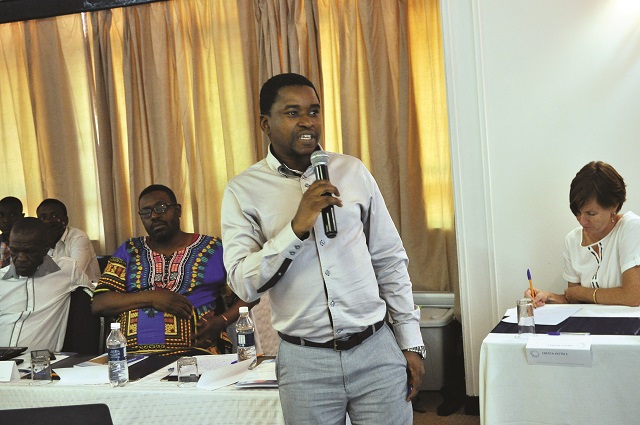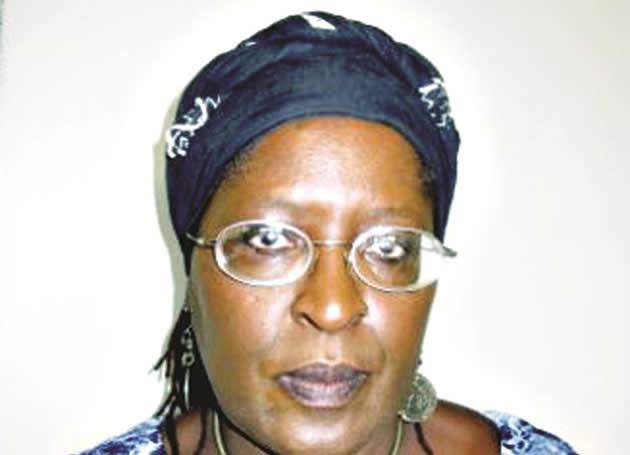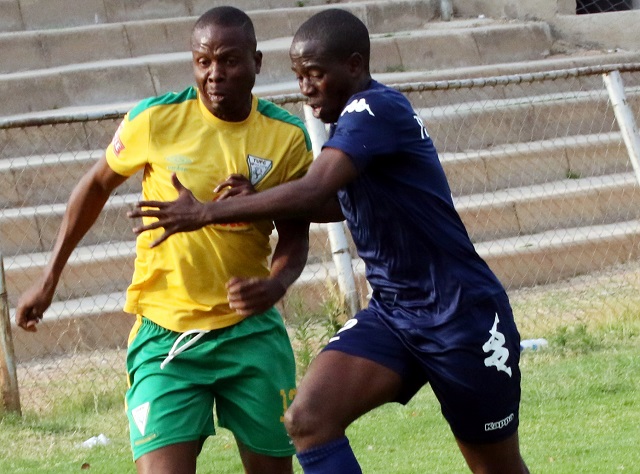Media urged to set climate change agenda


Sunday News editor Limukani Ncube makes a presentation at the climate change reporting workshop held in Bulawayo yesterday. Listening (from left) are Tapfuma Machakaire and ZUJ secretary general Foster Dongozi
Pamela Shumba, Senior Reporter
JOURNALISTS have an important role to play in creating awareness on climate change which is not widely covered by the local media, the Zimbabwe Union of Journalists (ZUJ) has said.
Addressing journalists during the climate change reporting workshop in Bulawayo yesterday that was organised by ZUJ in conjunction with the Konrad Adenauer Stiftung (KAS), editors from different media organisations emphasised the need for journalists to set a climate change agenda in the media.
The workshop was held under the theme “Popularising the climate change debate through media”.
Zuj secretary general Foster Dongozi said ZUJ and KAS had started a series of engagements with journalists to promote reporting on climate change.
“Climate change is an information intensive subject. Well informed journalists are best positioned to report climate change which could be the biggest threat to humanity in living memory,” said Dongozi.
In his presentation at the workshop, Sunday News editor, Limukani Ncube said there is a need to address gaps in newsrooms so that climate issues are given the attention they deserve.
He said climate change has a negative impact on people’s livelihoods.
Ncube called for more periodic engagements between environmental experts and media practitioners to demystify the subject and make people understand its effects.
“Because climate change refers to the average conditions a place experiences over many years, it needs a bit of some research and observation over a period of time to see the change. In general terms, journalists are not wired to make such observations.
“The climate change story has over the years been internationalised, yet people want to read about issues that affect them in their own localities. People therefore need that information to be broken down and simplified in order to show them how they are affected. Once that is done, journalists will also find it easier to report on climate change,” said Ncube.
He attributed the low coverage of climate change issues by media houses to the reduction in circulation figures and advertising revenue.
“This leaves little room to specialised reporting like environmental reporting. Most newsroom budgets have also been reduced making it difficult for those who love reporting on the environment to go out there and cover the bit as newspapers want to keep their fuel and travel allowances costs, among others, under check all the time,” said Ncube.
He added that there was a need to incentivise journalists who are keen on environmental reporting, as that would go a long way in improving dissemination of information on the subject.
Veteran journalist Tapfuma Machakaire said journalists must be guided by their ethics and stick to professionalism when writing on climate change.
Standard Editor Kholwani Nyathi said lack of technical knowledge amongst journalists should be the first port of call in addressing gaps in climate change coverage.
“The starting point will be to provide regular training for media practitioners that have an interest in climate change so that they understand what they are writing about.
“Teaching innovative ways of telling the climate change story is important so that it doesn’t become boring. Journalists should also cultivate sources among people with the technical skills and knowledge pertaining to climate change,” said Nyathi.
The workshop was attended by journalists from different media houses and officials from KAS and ZUJ.
@pamelashumba1











Comments